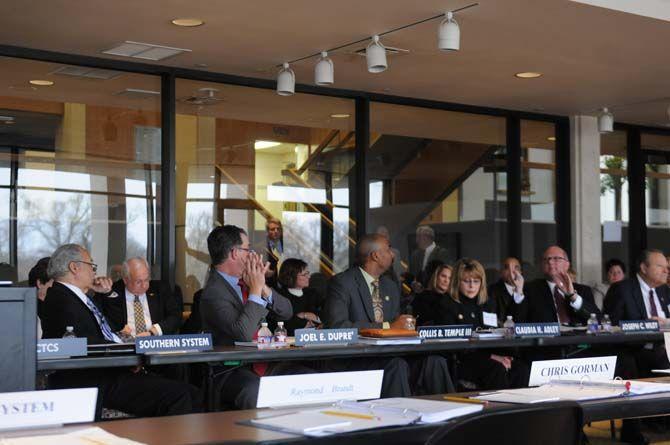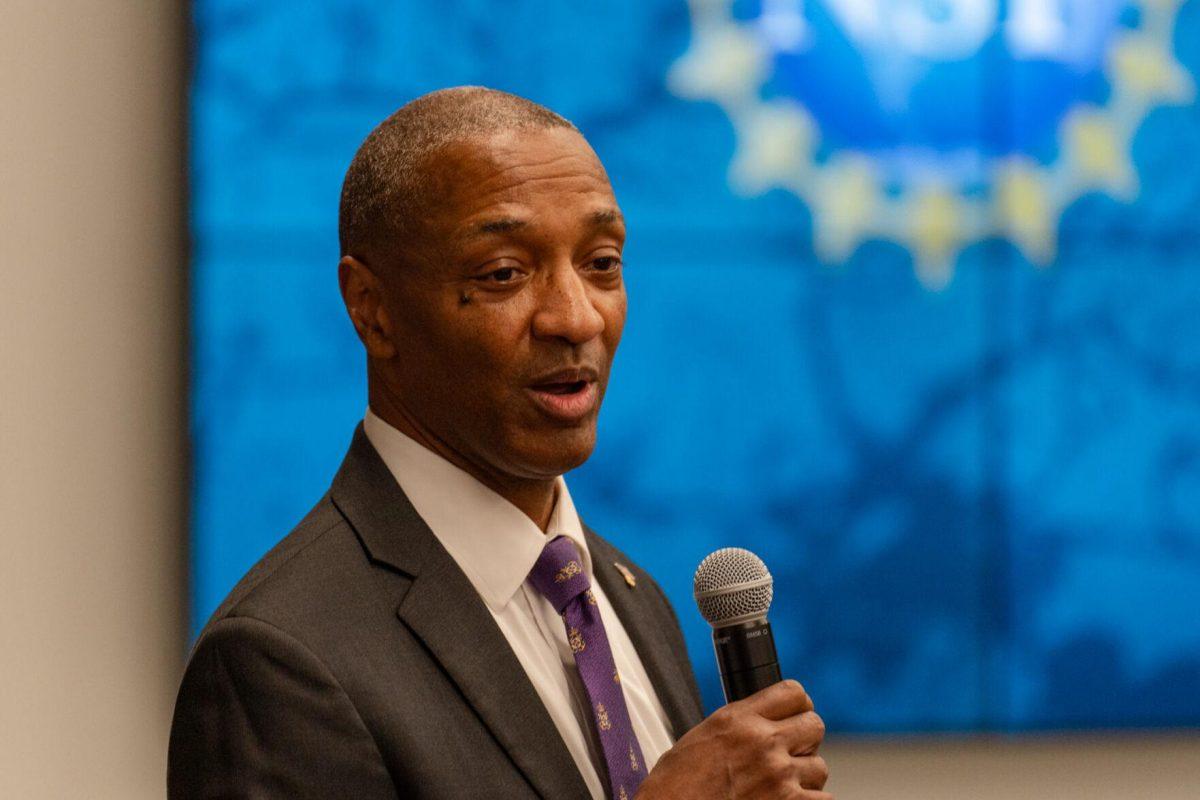The Louisiana Board of Regents formally recognized the College of Human Sciences and Education’s Leadership Development Institute Thursday.
The institute has been in development since August 2014, when administrators first received conditional approval from the Board of Regents and the University to pursue the project.
School of Human Resource Education and Workforce Development interim director Reid Bates said the idea for the institute germinated under retired SHREWD director Ed Holton. Bates said the college recognized a larger community need for leadership growth after witnessing the success of its leadership development minor.
Bates said ideas of leadership change over time, and it’s important for leaders to adapt to new ideas and challenges.
“Louisiana has a lot of challenges,” Bates said. “I think there’s a perception that meeting those challenges requires some effective leadership, and there really isn’t a nexus for leadership development in the state.”
LDI Director Jenny Daugherty said the institute intends to fill that void by focusing on three areas of leadership development: research, education and outreach.
The research arm will focus on identifying and leveraging effective leadership development processes to enhance the program’s outreach initiatives. The education branch will work to unify existing University resources and offer students cross-curricular development, Daugherty said.
The outreach portion will be the institute’s most extensive and publicly accessible facet. Daugherty said the institute will offer community workshops, curriculum and leadership programming, as well as a leadership assessment center to provide insight into participants’ personal leadership abilities.
Though the institute was officially recognized only Thursday, the program has already hosted a networking event to gauge community needs. Another networking event is scheduled for October, and two more will follow in the spring.
The networking events are a prelude to the institute’s first major event, She Geauxs: Inward, Onward, Outward: Women in Leadership, in November.
SHREWD Associate Director Tracey Rizzuto spearheaded the conference after realizing local leadership conferences and programs don’t provide a holistic approach to women’s development. Women in male-dominated fields often lose out on important socialization and mentor opportunities, and having those needs met elsewhere is important to women’s continued development, Rizzuto said.
The She Geauxs conference will provide attendees with insight into personal leadership styles, help them identify leadership strengths and weaknesses and offer guidance for leadership growth in both personal and professional realms.
Additionally, the conference will host several panels from international guests via video chat. Rizzuto said the guests will include a teenager from Syria discussing access to education in a war zone and the headmistress of a women’s school in India.
It’s important to provide leadership development opportunities to women because many of their development needs are different from men’s, Daugherty said. Traditional development paths are generally based on sustained employment and men’s career trajectories, whereas women’s careers typically feature gaps because of family obligations, she said.
Bates said female leadership in business and government is a refreshing change. Hosting She Geauxs and similar conferences could play an important role in encouraging women to pursue more leadership positions, he said.
“If you look at politics, business and industry, women don’t make up 50 percent of the leaders there,” Bates said. “I see it as a way to draw attention to that issue and hopefully increase women’s roles in those leadership positions.”
Aside from the women’s leadership conference, Daugherty said the institute is focusing on finding its niche, both locally and in the academic community nationally, and identifying avenues for funding support.
The institute will be entirely self-sustaining, and Daugherty is exploring grants, community partnerships and industry sponsors as sources of funding. The most important thing is to ensure the mission continues to drive the institute, not funding, she said.
The institute is also building its community advisory board. Daugherty said the board has representatives from industry, government and the environment, and she is looking to identify community partners who will support the institute’s mission and serve as a valuable sounding board for ideas.
LSU Leadership Development Institute approved by Board of Regents
September 22, 2016
Members debate during the Board of Regents meeting on Feb. 23, 2015, where tuition autonomy is discussed.
More to Discover








